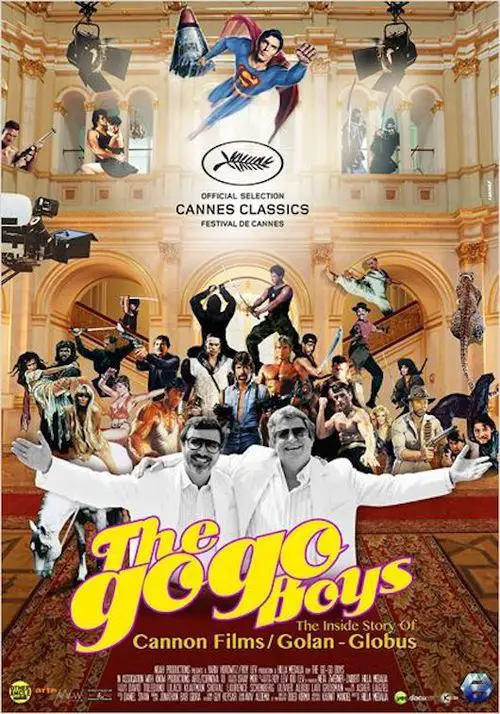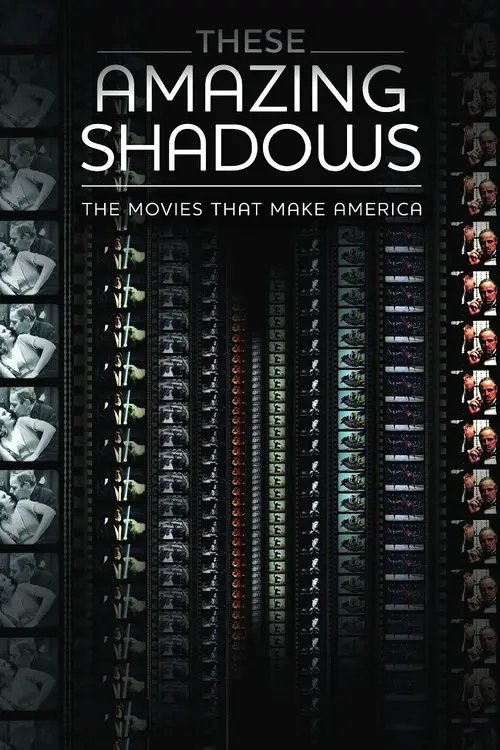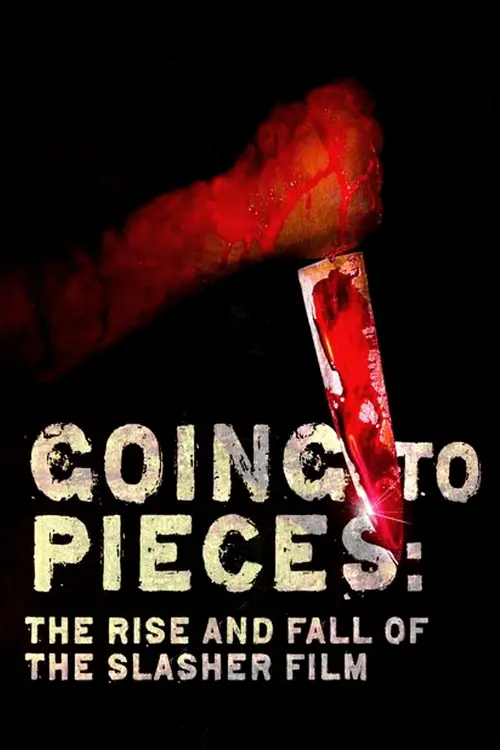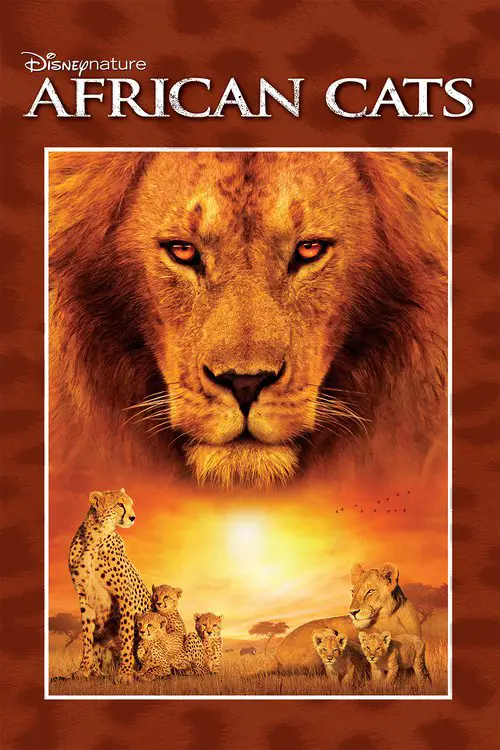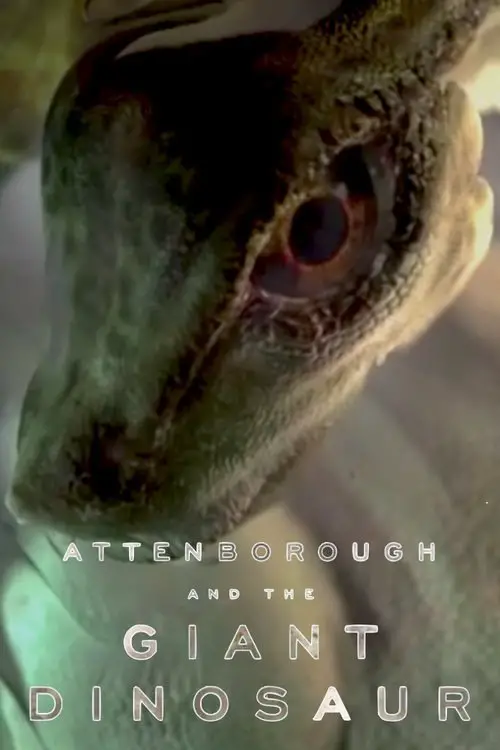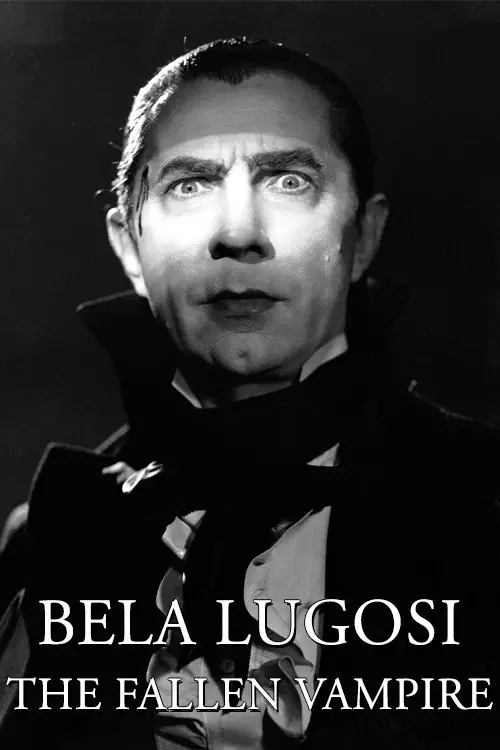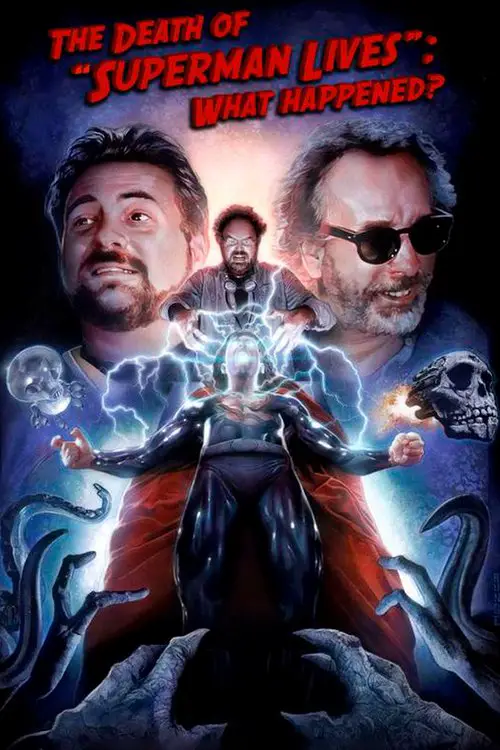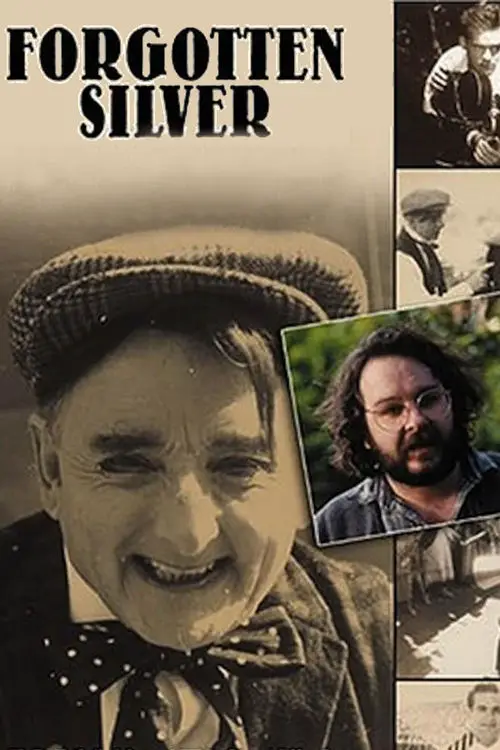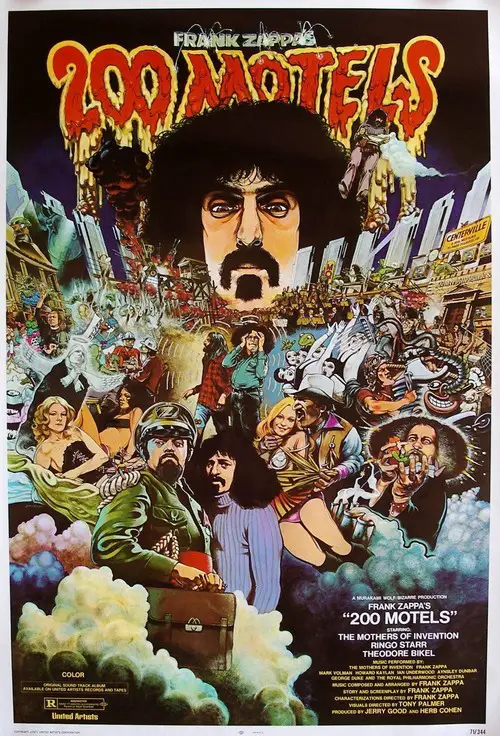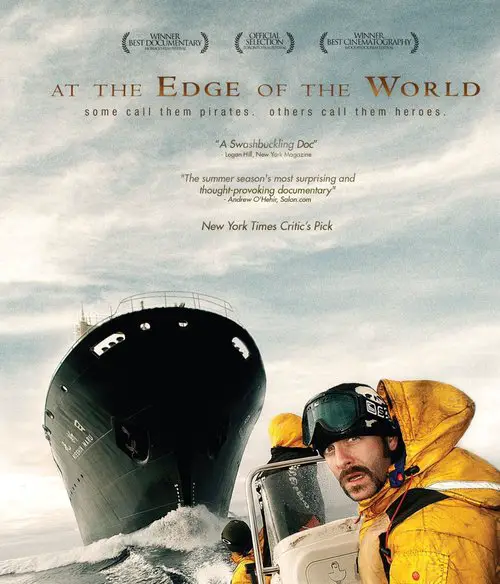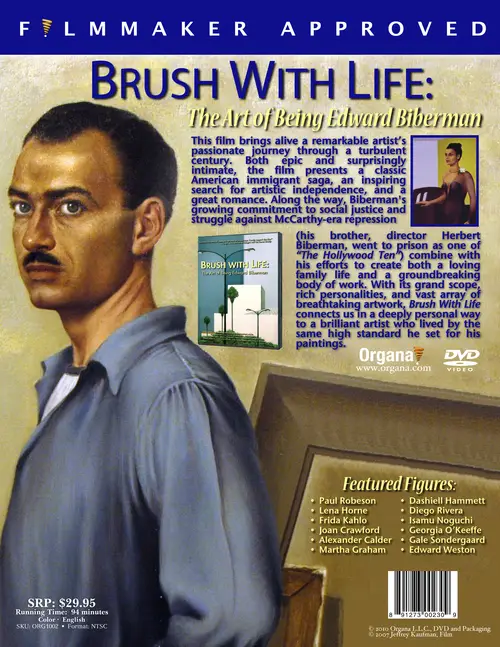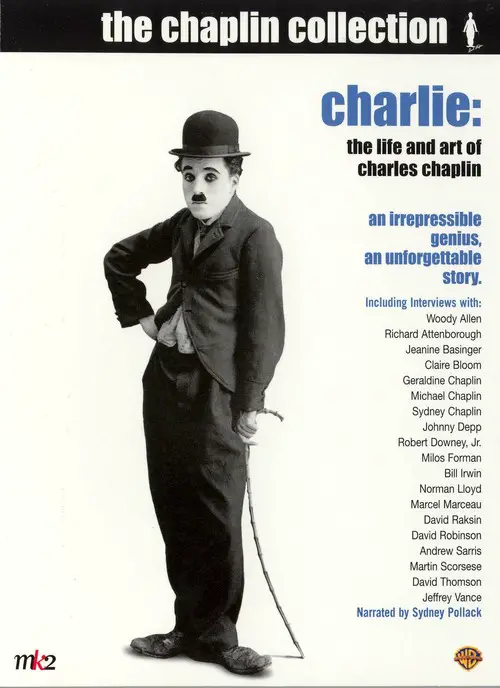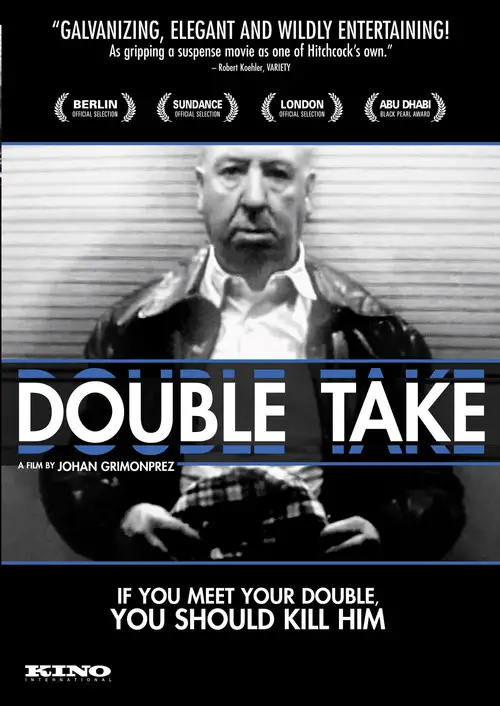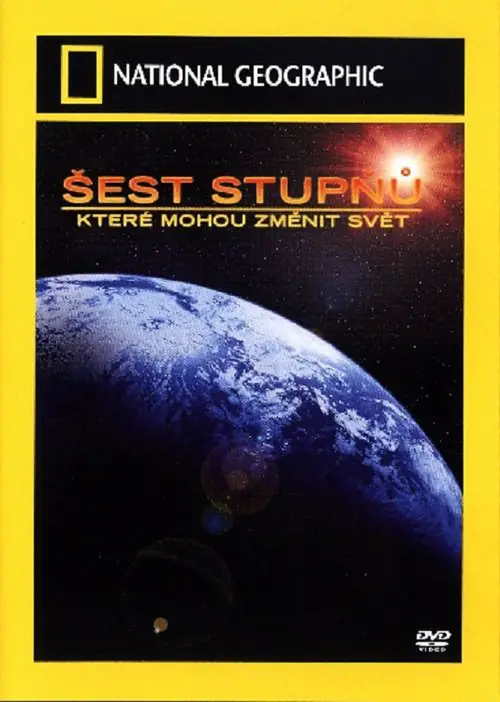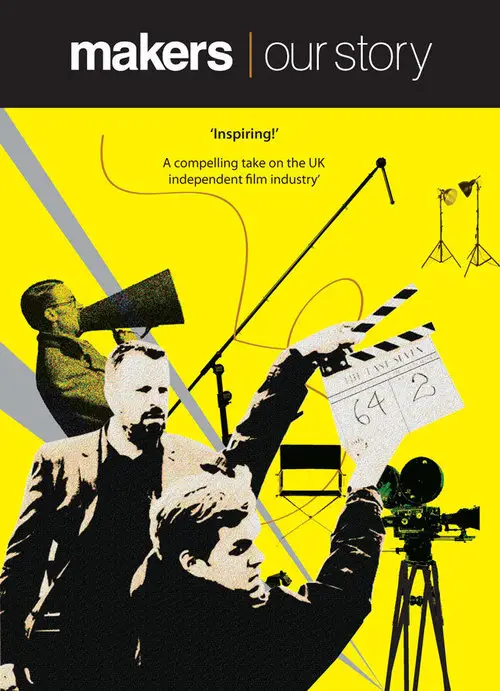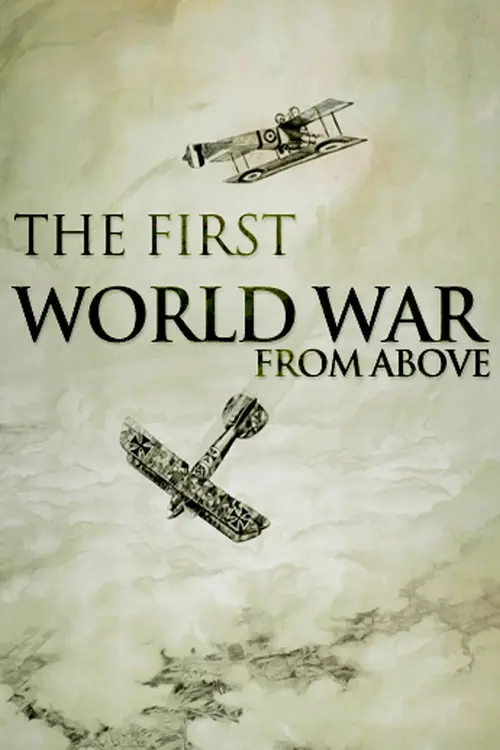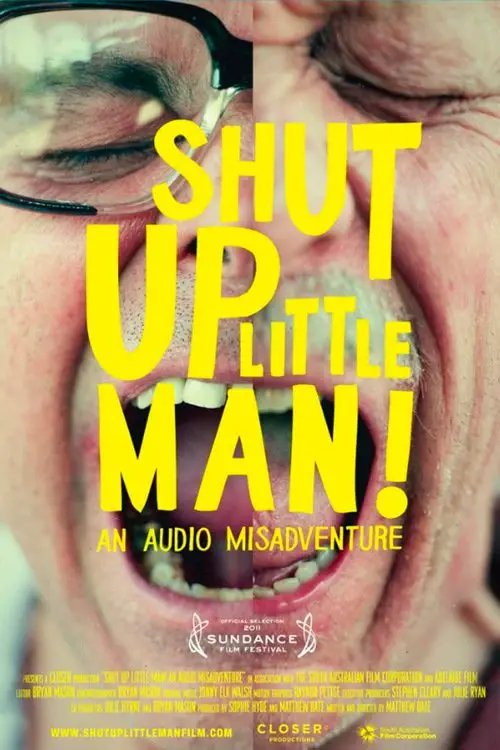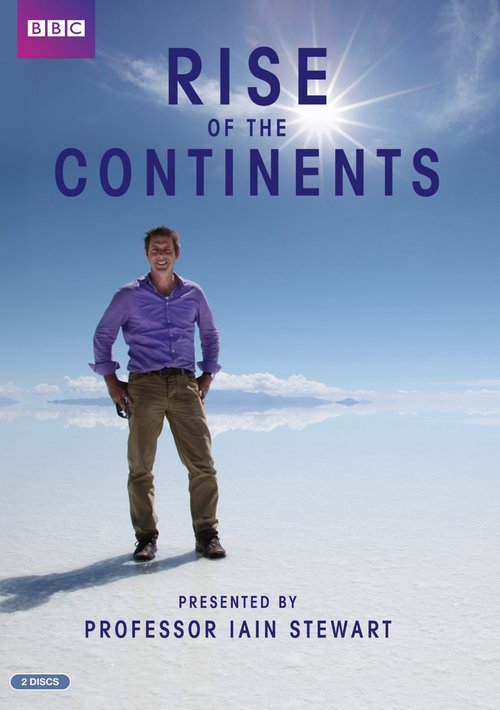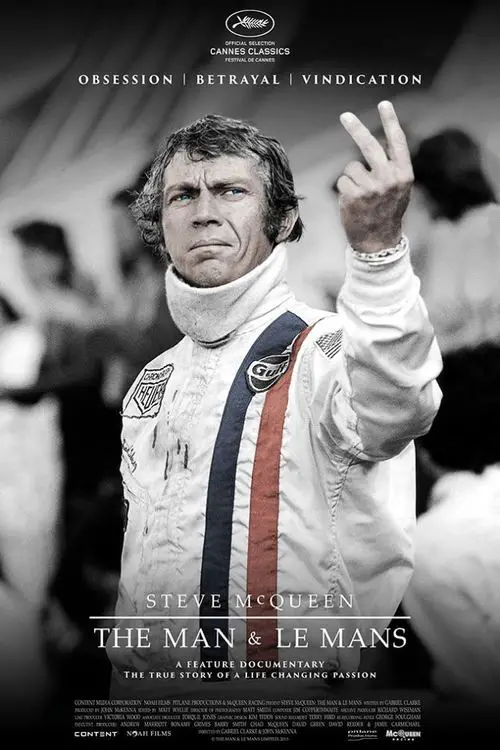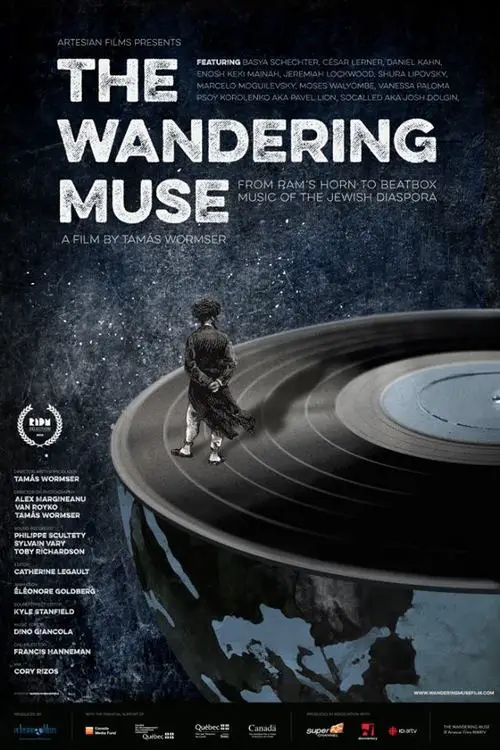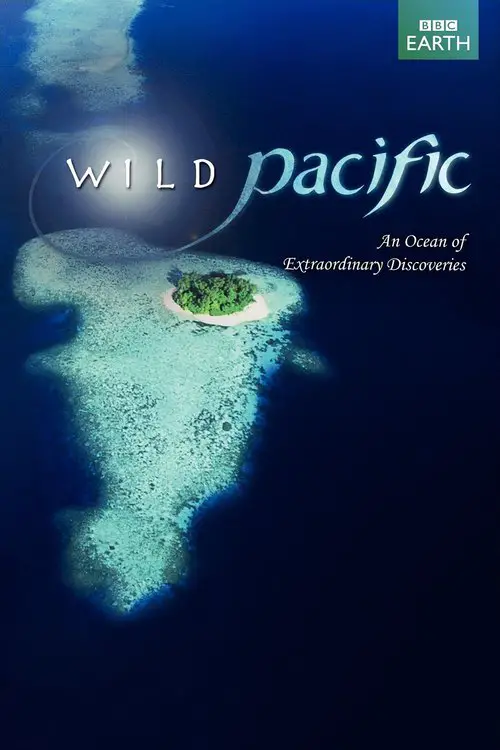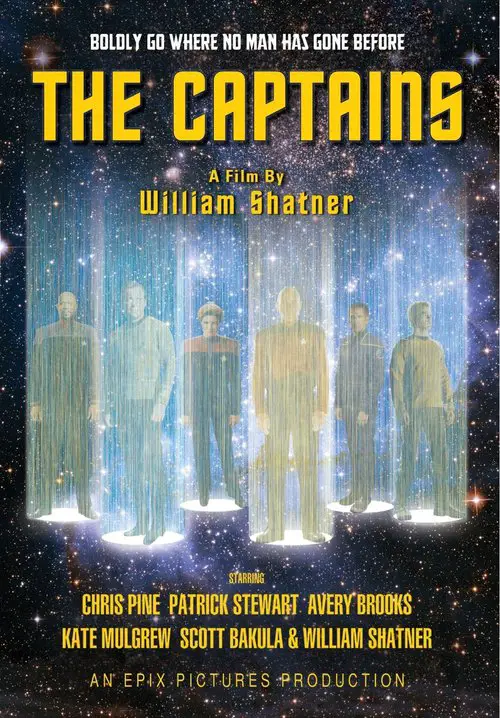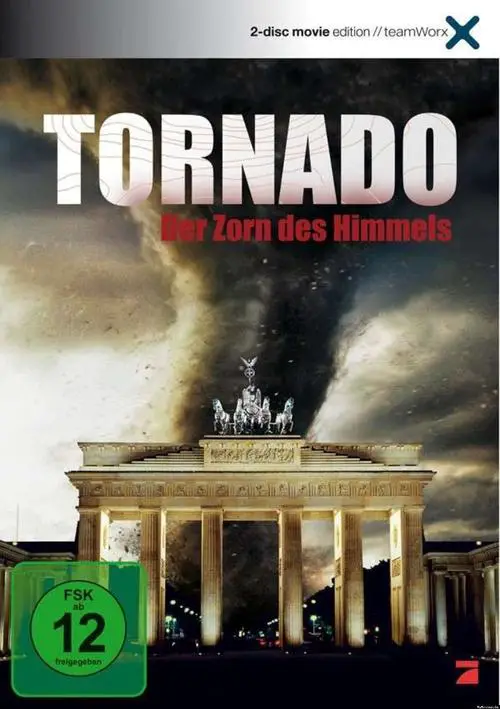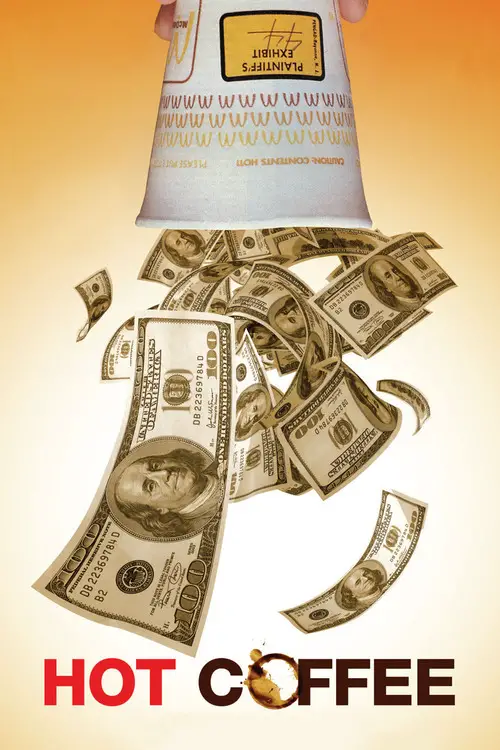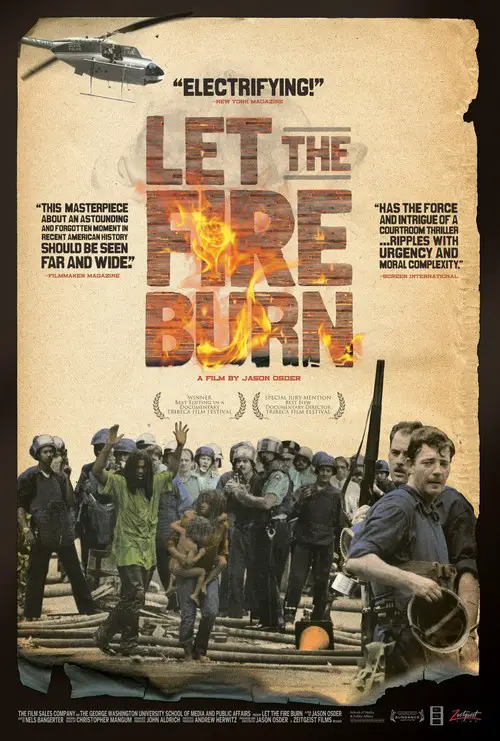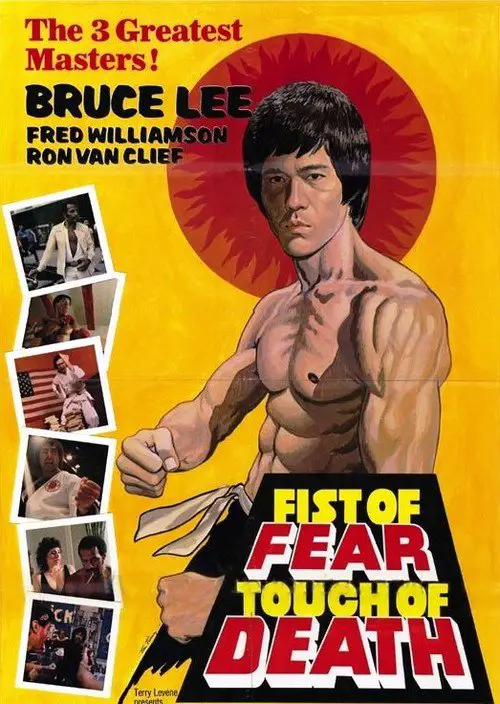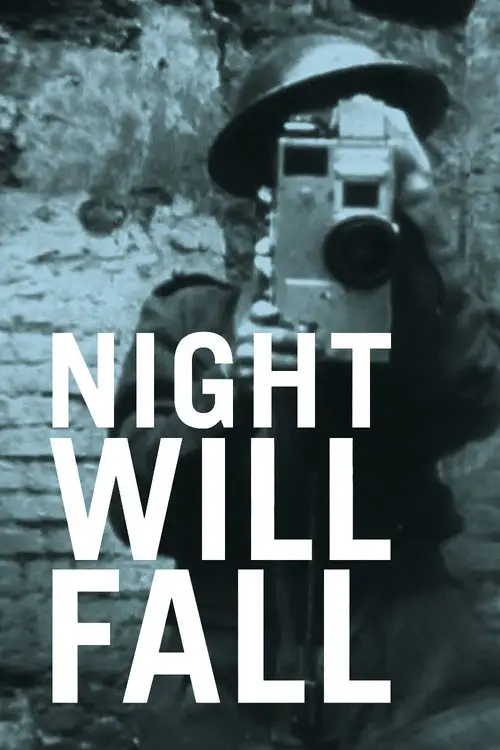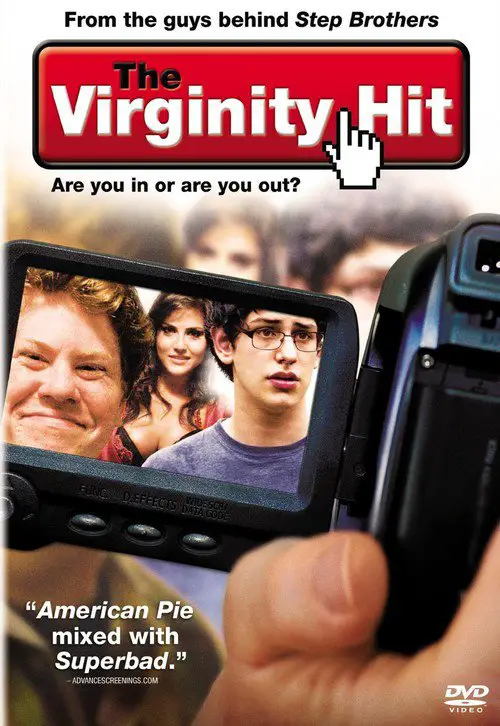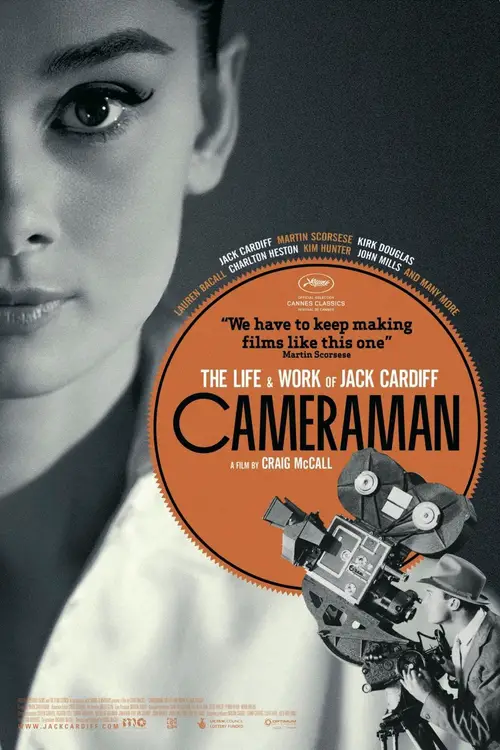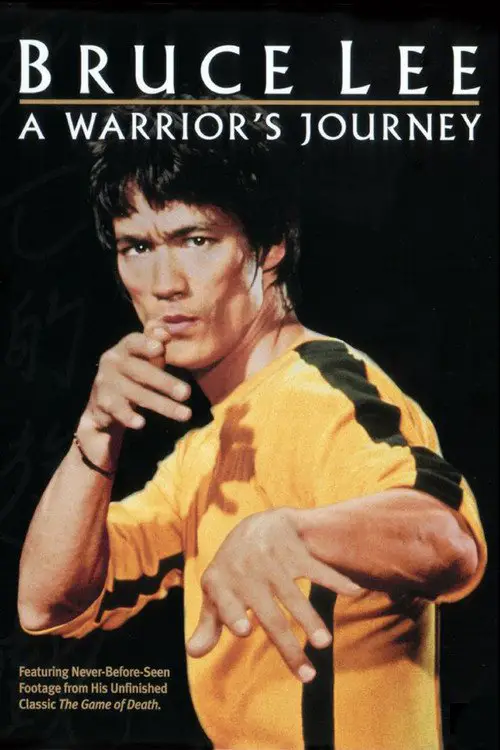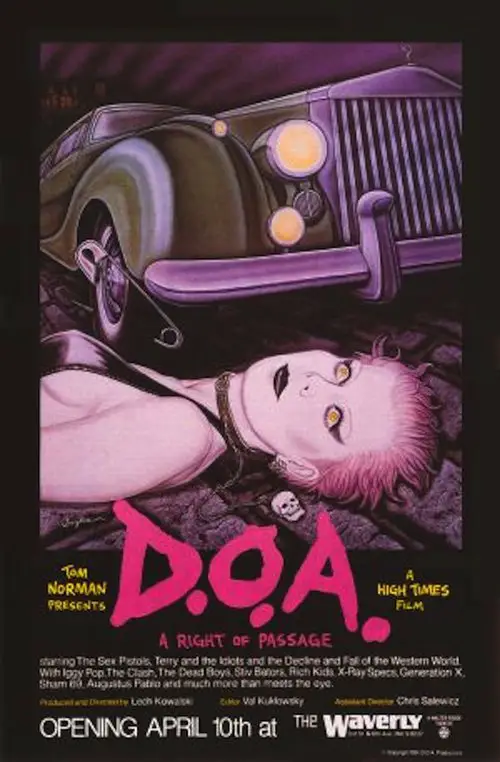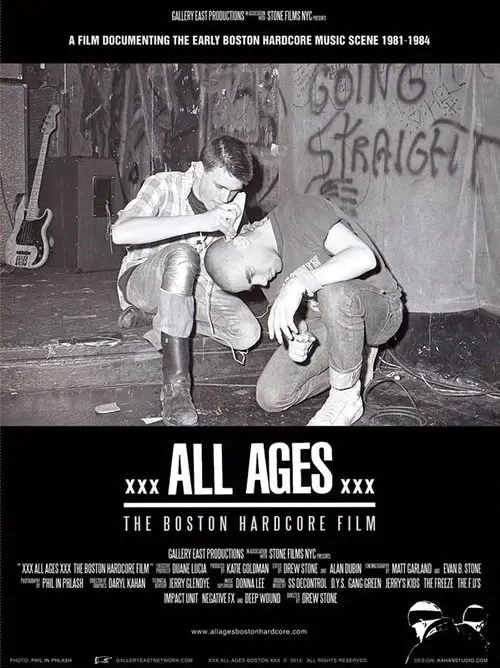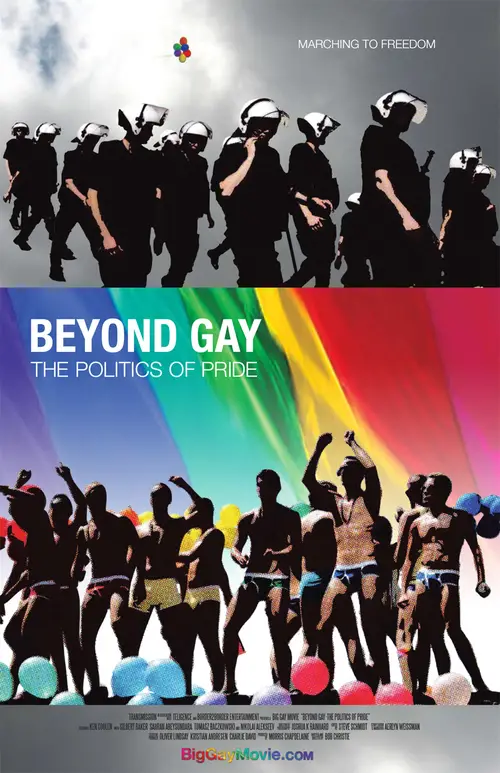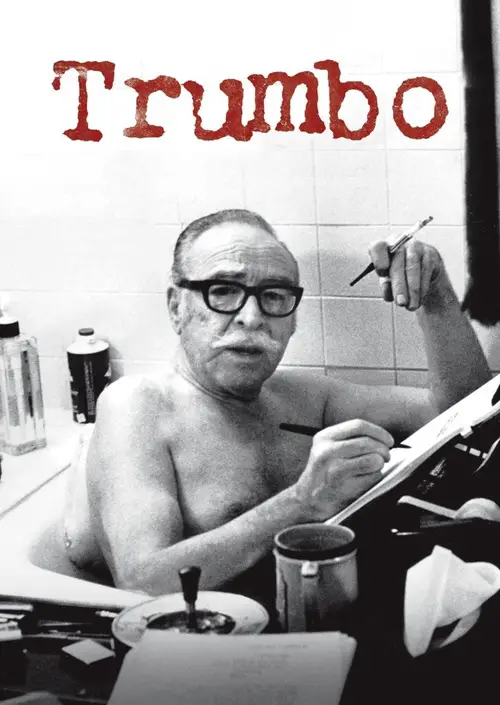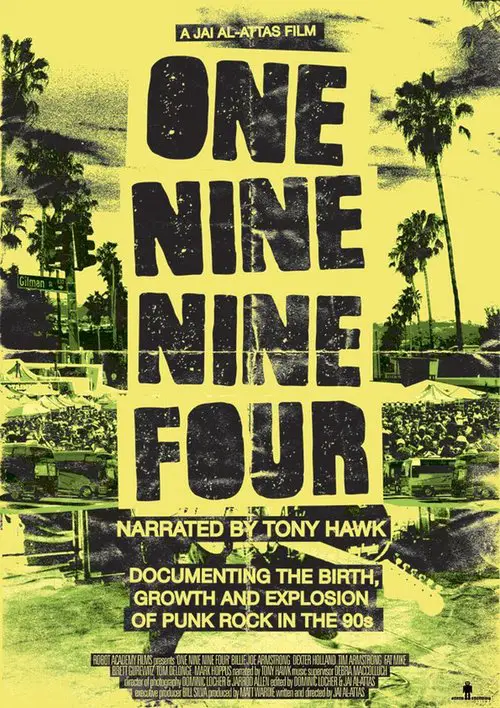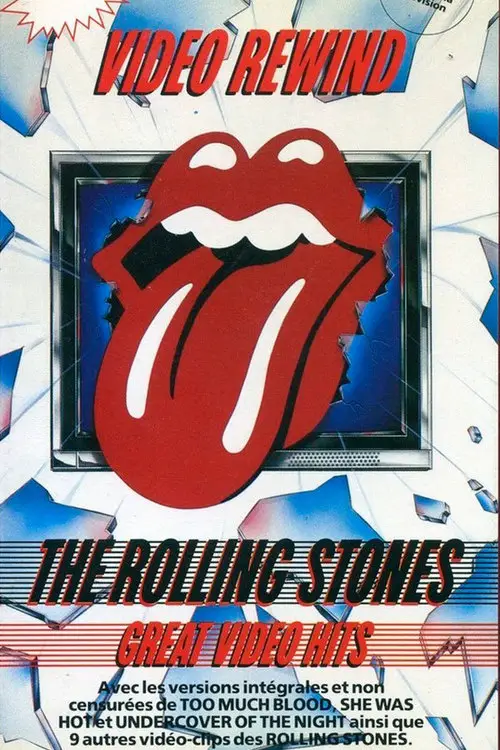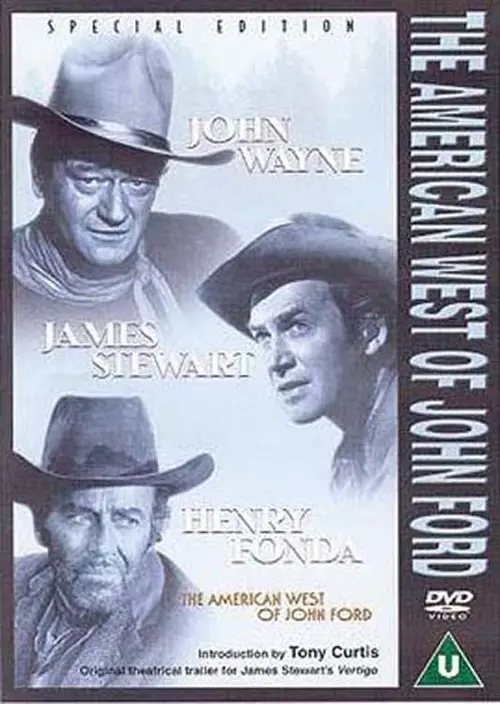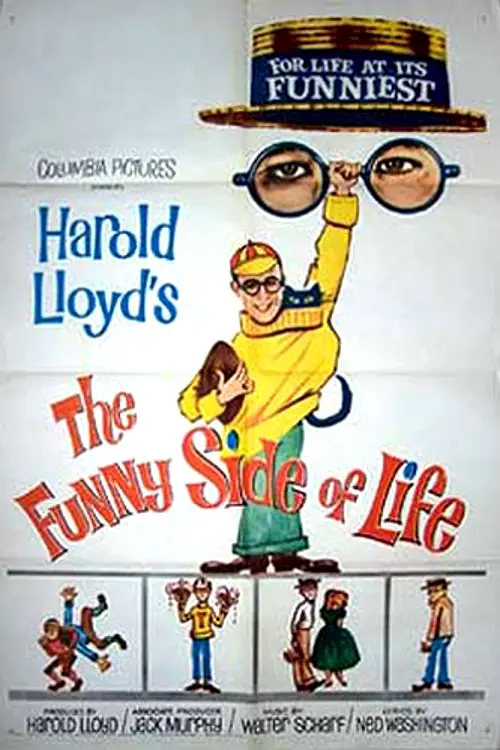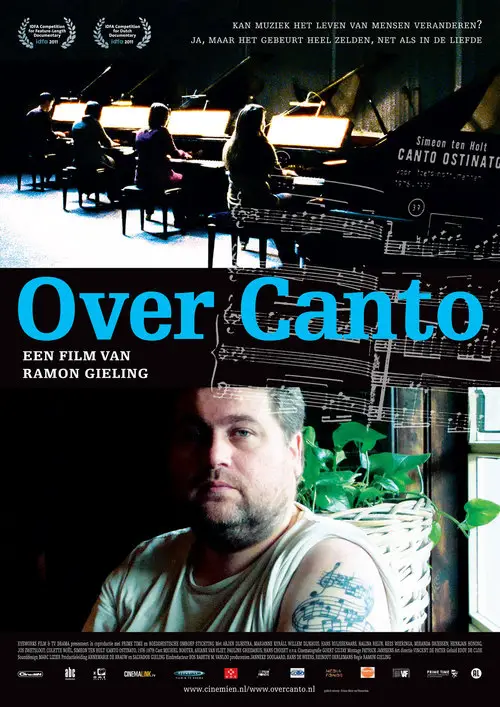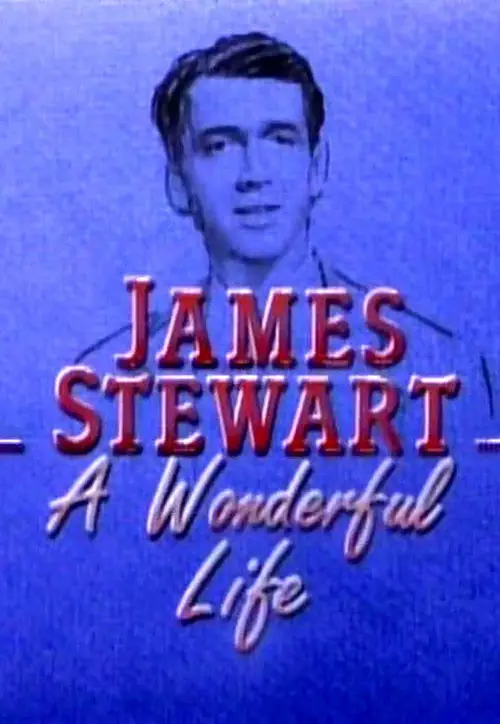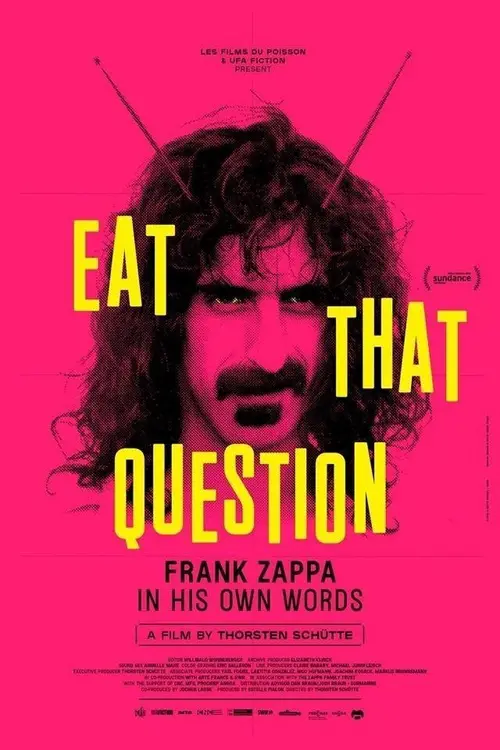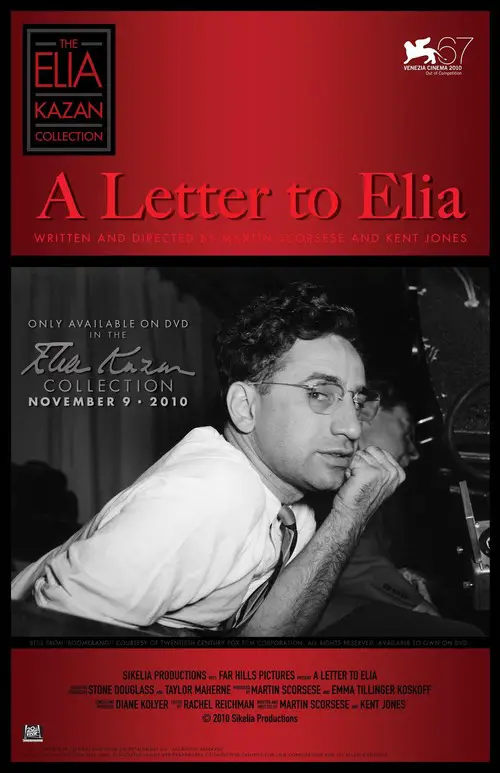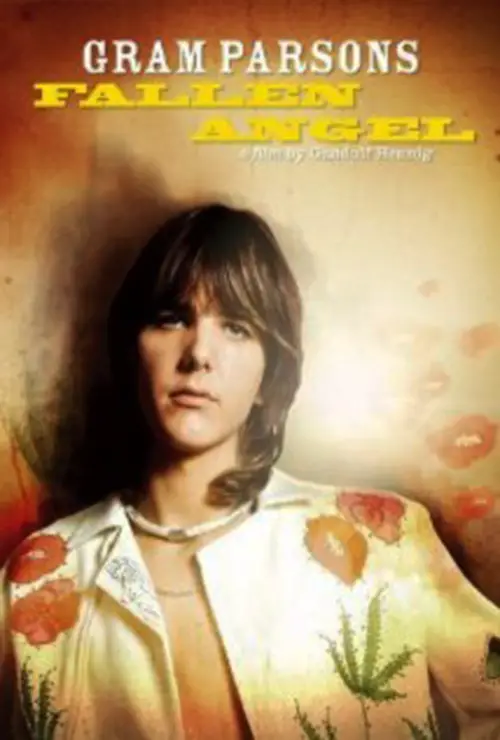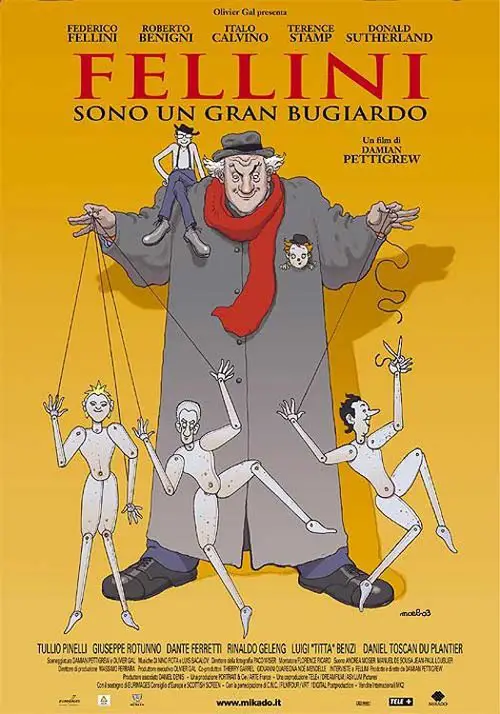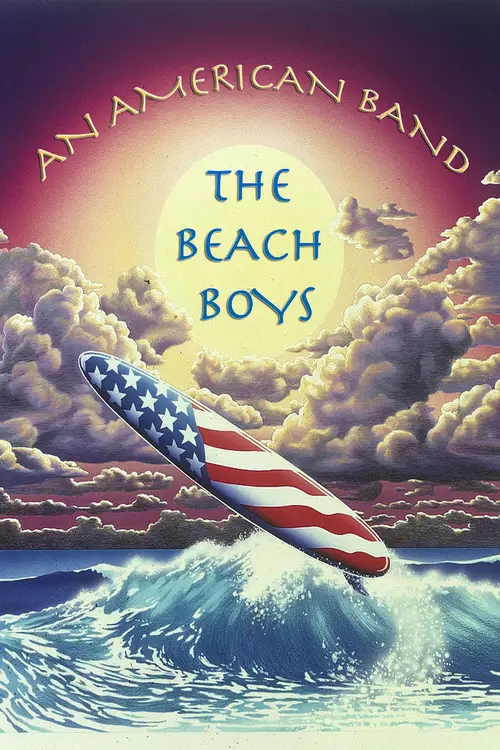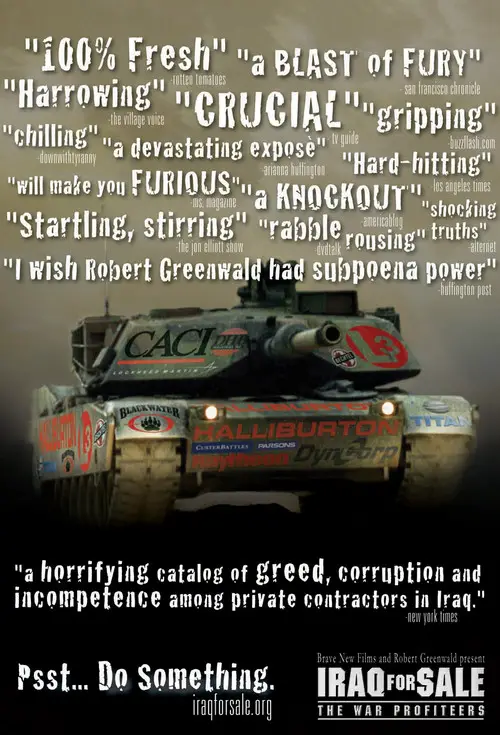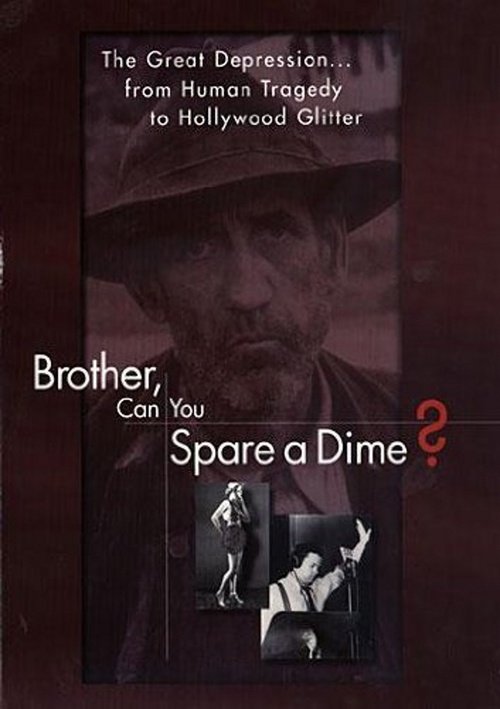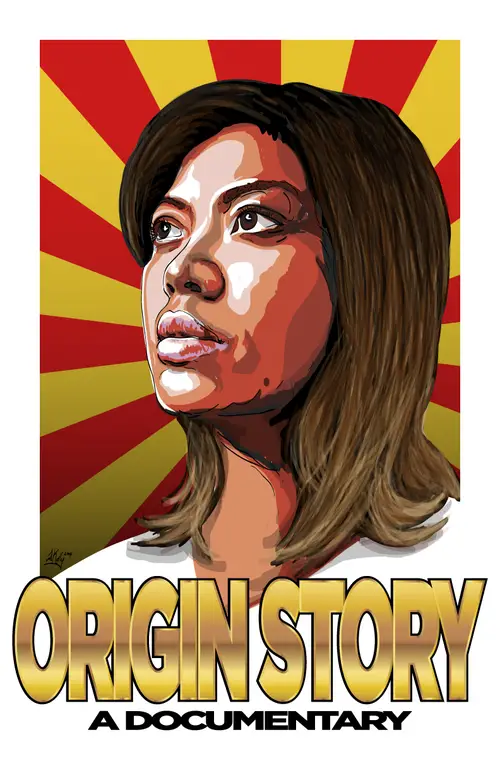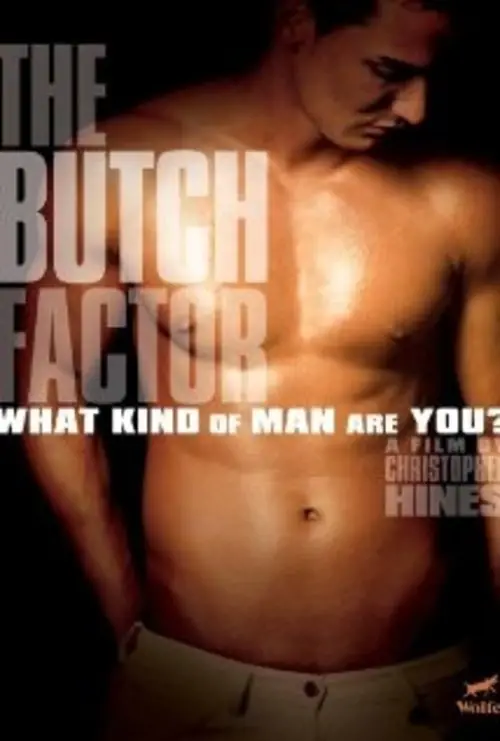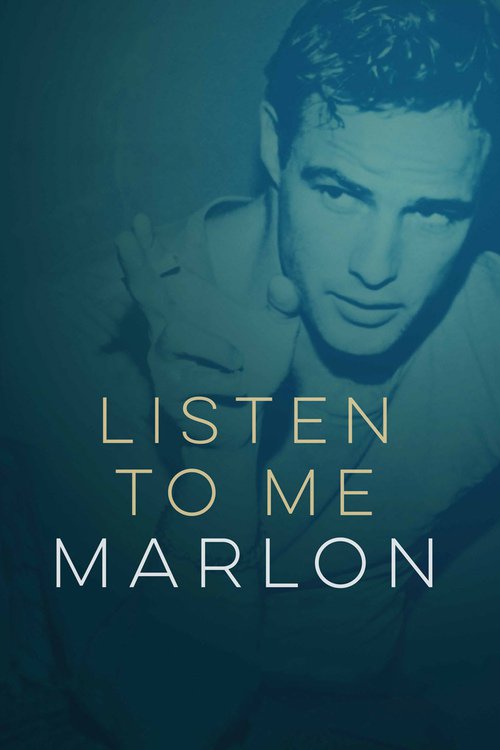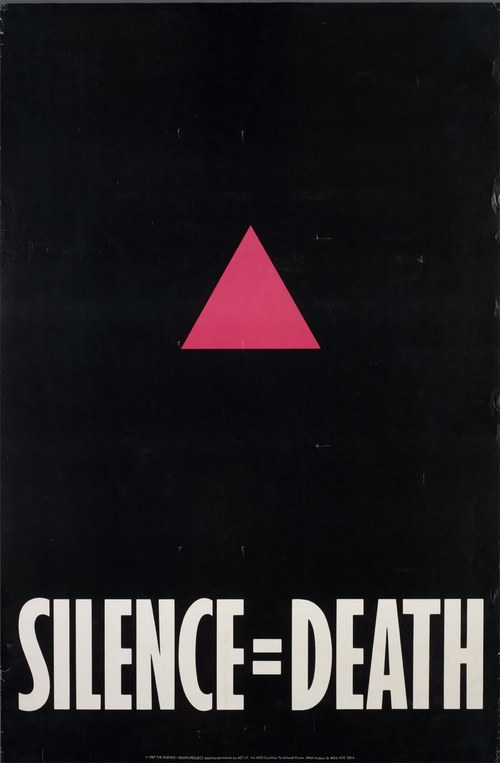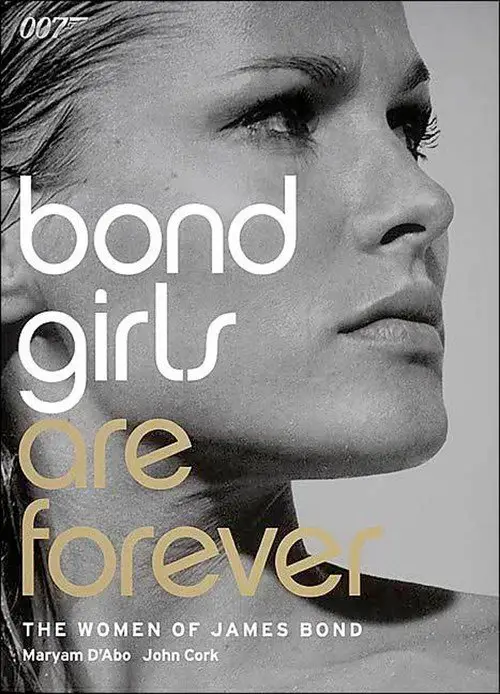Lugosi: Hollywood's Dracula (1997)
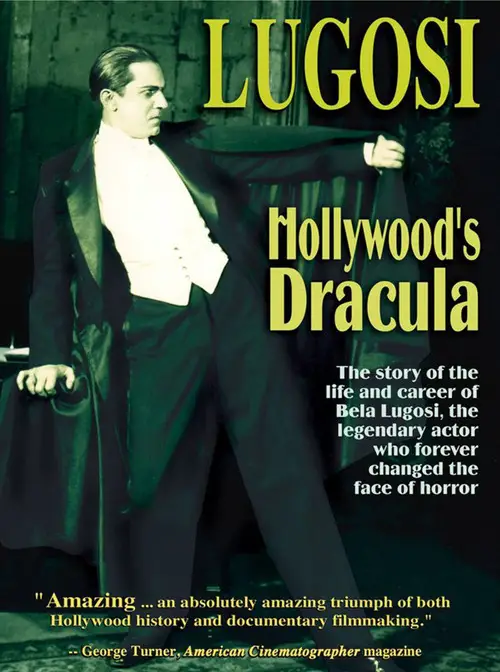
Similar movies
The Go-Go Boys tells the inside story of two Israeli-born cousins, the late Menahem Golan and Yoram Globus, who in pursuit of the âAmerican dreamâ turned the Hollywood establishment upside down. Together they produced more than 300 films and founded the most powerful independent film company in the world, Cannon Films, which was responsible for Israeli and mainstream, Hollywood-blockbuster, action/exploitation hits during the duoâs 1980s hey day, starring the likes of Chuck Norris, Jean-Claude Van Damme and Charles Bronson. Up close and personal, and with the complete cooperation of the filmâs subjects, the film examines the complex relationship between two contradictory personalities, whose combined force fueled their successes and eventual split. A film about filmmaking and two dogged, exceptional characters with modest origins taking on the big boys.
The Age of Stupid is the new movie from Director Franny Armstrong (McLibel) and producer John Battsek (One Day In September). Pete Postlethwaite stars as a man living alone in the devastated future world of 2055, looking at old footage from 2008 and asking: why didnât we stop climate change when we had the chance?
This historical and critical look at slasher films, which includes dozens of clips, begins with "Halloween," "Friday the 13th," and "Prom Night." The films' directors, writers, producers, and special effects creators comment on the films' making and success. During the Reagan years, the films get gorier, budgets get smaller, and their appeal wanes. Then, "Nightmare on Elm Street" revives the genre. Jump to the late 90s, when "Scream" brings humor and TV stars into the mix. Although some criticize the genre as misogynistic (Siskel and Ebert), most of the talking heads celebrate the films: as long as there are teenagers, there will be slasher films, says one.
Meeting People Is Easy takes place during the promotion of Radiohead's 1997 release OK Computer, containing a collage of video clips, sound bites, and dialogue going behind the scenes with the band on their world tour, showing the eventual burn-out of the group as the world tour progresses. The inaugural show of the OK Computer tour began on 22 May 1997 in Barcelona, Spain.
African Cats captures the real-life love, humor and determination of the majestic kings of the savanna. The story features Mara, an endearing lion cub who strives to grow up with her motherâs strength, spirit and wisdom; Sita, a fearless cheetah and single mother of five mischievous newborns; and Fang, a proud leader of the pride who must defend his family from a once banished lion.
David Attenborough tells the story of the discovery and reconstruction in Argentina of the world's largest-known dinosaur, a brand new species of titanosaur. Measuring 37m long and weighing 70 metric tons, it now holds the record as the biggest animal ever to walk the Earth. In 2014, a shepherd spotted the tip of a gigantic fossil bone sticking out of a rock in La Flecha Farm in the Chubut Province in the Argentinian desert. Palaeontologists soon uncovered a massive 2.4m long thigh bone, the largest ever found. By the end of the dig they had uncovered more than 220 bones. As the programme reveals, these all belong to a new species of the giant plant-eating titanosaur. Filmed over the next two years, Attenborough witnesses the uncovering and examination of these stupendous fossils and the dramatic construction of the complete skeleton. The film also reveals the internal secrets of this dinosaur and what it means to be a giant.
On Valentines Day, 1931, Universal Pictures released the film Dracula - the first true horror movie. Its worldwide success catapulted the film's lead actor, Romanian-born Bela Lugosi, to overnight stardom. "Bela Lugosi: The Fallen Vampire" traces the life and career of this mysterious man whose name became synonymous with the evil, yet magnetically compelling Count Dracula. Using archival still and film clips as well as interviews with film historians, actors and Lugosi himself, the special chronicles the meteoric rise and then precipitous decline of a talented yet tragic man who forever changed the face of horror films.
AMERICAN MOVIE is the story of filmmaker Mark Borchardt, his mission, and his dream. Spanning over two years of intense struggle with his film, his family, financial decline, and spiritual crisis, AMERICAN MOVIE is a portrayal of ambition, obsession, excess, and one man's quest for the American Dream.
Since the invention of cinema, the standard format for recording moving images has been film. Over the past two decades, a new form of digital filmmaking has emerged, creating a groundbreaking evolution in the medium. Keanu Reeves explores the development of cinema and the impact of digital filmmaking via in-depth interviews with Hollywood masters, such as James Cameron, David Fincher, David Lynch, Christopher Nolan, Martin Scorsese, George Lucas, Steven Soderbergh, and many more.
The Death of 'Superman Lives': What Happened? feature film documents the process of development of the ill fated "Superman Lives" movie, that was to be directed by Tim Burton and star Nicolas Cage as the man of steel himself, Superman. The project went through years of development before the plug was pulled, and this documentary interviews the major players: Kevin Smith, Tim Burton, Jon Peters, Dan Gilroy, Colleen Atwood, Lorenzo di Bonaventura and many many more.
This dryly funny mockumentary about the lost work of a pioneering New Zealand film genius is probably one of the best examples of the faux-documentary genre. In fact, it was so successful that when it originally aired on New Zealand television, hundreds of viewers bought the premise hook, line, and sinker. If you didn't know any better yourself, it's entirely possible you might be duped into believing the extremely tall tale of one Colin MacKenzie, an ambitious filmmaker who made the world's first talking movie (years before The Jazz Singer), invented color film, and created a huge biblical epic that would put Cecil B. DeMille and D.W. Griffith to shame. Filmmaker Peter Jackson (Heavenly Creatures) shrewdly inserts himself into the film via his documentation of the "discovery" of McKenzie's lost epic, which for years was preserved in a garden shed.
"Touring makes you crazy," Frank Zappa says, explaining that the idea for this film came to him while the Mothers of Invention were touring. The story, interspersed with performances by the Mothers and the Royal Symphony Orchestra, is a tale of life on the road. The band members' main concerns are the search for groupies and the desire to get paid.
At the Edge of the World chronicles the controversial Sea Shepherd Antarctic Campaign against a Japanese whaling fleet. The international volunteer crew, under-trained and under-equipped, develop a combination of bizarre and brilliant tactics with which to stop the whalers. But first they must find the Japanese ships, a far more difficult challenge than ever imagined - long-time activist Paul Watson and first-time captain Alex Cornelissen employ an array of strategies in the hopes of finding an elusive adversary in the vast expanse of the Ross Sea. With one ship (the Farley Mowat) too slow to chase down the whaling fleet, with their second ship (the Robert Hunter) unsuited for Antarctic ice conditions and with no country supporting their efforts to enforce international law, the situation becomes increasingly desperate. Against all odds, however, a real-life pirate tale unfolds - a modern-day "David vs. Goliath" adventure.
This documentary brings alive a remarkable artistâs passionate journey through a turbulent century. Both epic and surprisingly intimate, the film presents a classic American immigrant saga, an inspiring search for artistic independence, and a great romance. Along the way, Biberman's growing commitment to social justice and struggle against McCarthy-era repression (his brother, director Herbert Biberman, went to prison as one of The Hollywood Ten) combine with his efforts to create both a loving family life and a groundbreaking body of work. With its grand scope, rich personalities, and vast array of breathtaking artwork, Brush With Life connects us in a deeply personal way to a brilliant artist who lived by the same high standards he set for his paintings.
Director Johan Grimonprez casts Alfred Hitchcock as a paranoid history professor, unwittingly caught up in a double take on the cold war period. Subverting a meticulous array of TV footage and using 'The Birds' as an essential metaphor, DOUBLE TAKE traces catastrophe culture's relentless assault on the home, from moving images' inception to the present day.
Makers Our Story is a feature length documentary about the UK independent film industry directed and produced by independent filmmakers. It is an inspirational documentary featuring an array of talent from the UK filmmaking community with interviews from award-winning filmmakers and film industry experts. The documentary gives a rare insight into the work of the indie filmmakers who exist outside of the Hollywood studios and shows the passion and commitment of a generation of filmmakers who share their experiences working in a challenging industry.
The story of the Great War told from a unique new aerial perspective. Featuring two remarkable historical finds, including a piece of archive footage filmed from an airship in summer 1919, capturing the trenches and battlefields in a way that has rarely been seen before. It also features aerial photographs taken by First World War pilots - developed for the first time in over ninety years - that show not only the devastation inflicted during the fighting, but also quirks and human stories visible only from above.
In 1987, Eddie Lee Sausage and Mitch Deprey recorded the nightly squabbles of their over-the-top neighbors, homophobic Raymond Huffman and proudly gay Peter Haskett, and the chronicle of the pair's bizarre existence soon took on a life of its own. This darkly funny documentary checks in with former punks Eddie and Mitch, who detail their late-'80s Lower Haight surroundings, and surveys the tapes' influence on an array of underground artists.
Ep1 - Africa Africa is the cradle of humanity, it is land born from violent, cataclysmic events. Ep2 - Eurasia Europe and Asia; geologically they are part of the same vast landmass, Eurasia. Shaped by a series of collisions, mountain ranges have been pushed up, valleys created and a once great ocean has come and gone. Ep3 - The Americas From the bedrock the Empire State Building is built on, to the Spanish empires in South America, the two land masses of North and South America are linked by geology and history. Ep4 - Australia Australia was once part of a super-continent and its deserts were covered in forests. Once joined to Antarctica, it split off and moved northwards into warmer climes, whilst Antarctica became an icy wasteland.
A documentary series on life in and adapted to the conditions of the Southern part of the Pacific Ocean, a vast aquatic region with an unequaled number of islands. Both wildlife and human cultures developed in a unique variety, largely determined by such natural conditions as huge distances, sea depths, currents and winds.
In this remarkable documentary, Noam Chomsky offers a riveting but devastating critique of America's current war on terror arguing, in fact, that it is a logistical impossibility for such a war to be taking place. Professor Chomsky presents his reasoning with astonishing and refreshing clarity, drawing from a wealth of historical knowledge and analysis. "Only those who are entirely ignorant of modern history will be surprised by the course of events, or by the justifications that are provided..."
The hottest summer in years: Meteorologist Jan returns from Oklahoma, where he has studied twisters up close, after faring a traumatic catastrophe during his dangerous research. Back in Berlin, he comes to face with his past and his ex-girlfriend Eva, who he had left behind. He clashes with his father, head of the local weather institute, and only his blind sister Sophie still seems to trust him. But no longer is Jan in town that an unusual cold front approaches the city. Immediately Jan recognizes the familiar warning signs of impending doom. He tries to alert the officials, but is ignored by both his father and the government. He is later proven right, and a tornado devastates Berlin. Jan tries to save the people he loves so dearly, even if it means sacrificing his own life
Most people think they know the "McDonald's coffee case," but what they don't know is that corporations have spent millions distorting the case to promote tort reform. HOT COFFEE reveals how big business, aided by the media, brewed a dangerous concoction of manipulation and lies to protect corporate interests. By following four people whose lives were devastated by the attacks on our courts, the film challenges the assumptions Americans hold about "jackpot justice."
Jason Osder makes an impressive feature film debut through his unbiased and thorough account of the incidents leading up to and during the 1985 standoff between the extremist African-American organization MOVE and Philadelphia authorities. The dramatic clash claimed eleven lives and literally and figuratively devastated an entire community. Let the Fire Burn is a real-life Wild West story absent the luxury of identifying its heroes by the color of their hats.
When Allied forces liberated the Nazi concentration camps in 1944-45, their terrible discoveries were recorded by army and newsreel cameramen, revealing for the first time the full horror of what had happened. Making use of British, Soviet and American footage, the Ministry of Informationâs Sidney Bernstein (later founder of Granada Television) aimed to create a documentary that would provide lasting, undeniable evidence of the Nazisâ unspeakable crimes. He commissioned a wealth of British talent, including editor Stewart McAllister, writer and future cabinet minister Richard Crossman â and, as treatment advisor, his friend Alfred Hitchcock. Yet, despite initial support from the British and US Governments, the film was shelved, and only now, 70 years on, has it been restored and completed by Imperial War Museums.
Four guys, one camera, and their experience chronicling the exhilarating and terrifying rite of passage: losing your virginity. As these guys help their buddy get laid, they'll have to survive friends with benefits, Internet hookups, even porn stars during an adventure that proves why you will always remember your first time.
In 2001 Jack Cardiff (1914-2009) became the first director of photography in the history of the Academy Awards to win an Honorary Oscar. But the first time he clasped the famous statuette in his hand was a half-century earlier when his Technicolor camerawork was awarded for Powell and Pressburger's Black Narcissus. Beyond John Huston's The African Queen and King Vidor's War and Peace, the films of the British-Hungarian creative duo (The Red Shoes and A Matter of Life and Death too) guaranteed immortality for the renowned cameraman whose career spanned seventy years.
Legendary martial artist Bruce Lee is the subject of this thoughtful documentary by Lee aficionado John Little. Using interviews, behind-the-scenes footage and action sequences from Lee's last (unfinished) film, Game of Death, Little paints a textured, complex portrait of the world's most famous action hero
A French documentary or, one might say more accurately, a mockumentary, by director William Karel which originally aired on Arte in 2002 with the title Opération Lune. The basic premise for the film is the theory that the television footage from the Apollo 11 Moon landing was faked and actually recorded in a studio by the CIA with help from director Stanley Kubrick.
A documentary film that explores the early Boston Hardcore music scene from the years 1981 through 1984. This film delves into the social and communal aspects of that particular era. The community, culture, straight edge and DIY (do it yourself) ethic of the time are all explored in the film. Never before seen archival footage, photographs, interviews and dramatizations make up the body of the film. Bands included are SS Decontrol, DYS, Gang Green, The FU's, Jerry's Kids, Negative FX, The Freeze, and more.
Over the course of a year, film follows Vancouver Pride Society president Ken Coolen to various international Pride events, including Poland, Hungary, Russia, Sri Lanka and others where there is great opposition to pride parades. In North America, Pride is complicated by commercialization and a sense that the festivals are turning away from their political roots toward tourism, party promotion and entertainment. Christie documents the ways larger, more mainstream Pride events have supported the global Pride movement and how human rights components are being added to more established events. In the New York sequence, leaders organize an alternative Pride parade, the Drag March, set up to protest the corporatization of New York Pride. A parade in São Paulo, the world's largest Pride festival, itself includes a completely empty float, meant to symbolize all those lost to HIV and to anti-gay violence.
Through a focus on the life of Dalton Trumbo (1905-1976), this film examines the effects on individuals and families of a congressional pursuit of Hollywood Communists after World War II. Trumbo was one of several writers, directors, and actors who invoked the First Amendment in refusing to answer questions under oath. They were blacklisted and imprisoned. We follow Trumbo to prison, to exile in Mexico with his family, to poverty, to the public shunning of his children, to his writing under others' names, and to an eventual but incomplete vindication. Actors read his letters; his children and friends remember and comment. Archive photos, newsreels and interviews add texture. Written by
One Nine Nine Four is a documentary film written and directed by Jai Al-Attas, "exploring the birth, growth and eventual tipping point of punk rock during the 90s" . The bulk of the film's content consists of band interviews and archive footage. The film is narrated by skateboarder Tony Hawk and features interviews and footage of various bands and figures in the punk scene including Billie Joe Armstrong of Green Day, Dexter Holland from The Offspring, Greg Graffin and Brett Gurewitz from Bad Religion, Tim Armstrong, Matt Freeman (previously of Operation Ivy) and Lars Fredriksen from Rancid, Fat Mike from NOFX as well as Mark Hoppus and Tom DeLonge from Blink-182 .
Video Rewind by The Rolling Stones is a compilation of video clips recorded between 1972â1984. Instead of just presenting unrelated clips and videos just strung together, it uses a framing 'story', featuring Bill Wyman and Mick Jagger, directed by Julien Temple and includes some video directed by Michael Lindsay-Hogg. It was first released in 1984 on the VHS, Laserdisc, and CED Videodisc format by Vestron home video.
Dutch composer Simeon ten Holt achieved worldwide renown in 1979, when his work for four pianos Canto Ostinato was first performed. Although some music experts viewed it with disdain - it broke with prevailing notions of serialism and tonality - the piece was a huge hit in the contemporary classical music world. In the years since, numerous musicians have released their recordings of Canto, and it is still being performed around the world. Director Ramon Gieling interviewed a large number of people about the sometimes far-reaching impact this composition has had on their lives. One interviewee tells of how Canto was the soundtrack to the birth of her son; another has a section of the score tattooed on his arm. Gieling seeks to unravel the mystery of the universal power of music, and his blend of documentary footage, fiction, essays and archive material produces a multifaceted response to the question of just what it is about this piece that touches people so deeply.
A warm retrospective tribute on the life and career of actor James Stewart (1908-1997), hosted and narrated by Johnny Carson, with clips from many of his films and interviews with both Jimmy Stewart and several people who have worked with him.
Carson interviews Stewart in a casual setting while strolling through movie sets and some of the settings for some of Jimmy's best known films.
They discuss Mr. Stewarts philosophy of life and career. The movie clips shown cover the entire career of one of the most respected and beloved of American actors.
Also interviewed are Jimmy's wife, Gloria, Katherine Hepburn, Peter Bogdanovich, Clint Eastwood, Richard Dreyfuss, then President Reagan and first lady Nancy Reagan, Lee Remick and Gene Kelly.
Thorsten Schütteâs film is a sharply edited and energetic celebration of Zappa through his public persona, allowing us to witness his shifting relationship with audiences. Utilizing potent TV interviews and many forgotten performances from his 30-year career, we are immersed into the musicianâs world while experiencing two distinct facets of his complex character. At once Zappa was both a charismatic composer who reveled in the joy of performing and, in the next moment, a fiercely intelligent and brutally honest interviewee whose convictions only got stronger as his career ascended.
Director Martin Scorsese speaks candidly and passionately about one of his formative filmmaking influences: the late Elia Kazan. Utilizing precisely chosen clips from Kazan's signature films including "On the Waterfront," "A Streetcar Named Desire," "Gentleman's Agreement," "Baby Doll," "A Tree Grows in Brooklyn," "A Face in the Crowd," "America, America," and "The Last Tycoon," and interview footage of the director himself, co-directors Scorsese and Kent Jones recount the director's tumultuous journey from the Group Theatre to the Hollywood A-list to the thicket of the blacklist. But most of all, they make a powerful case for Kazan as a profoundly personal artist working in a famously impersonal industry.
On September 19, 1973, the musician and heir to a million-dollar fortune died under the influence of drugs and alcohol near his favourite place - the Joshua Tree National Monument in the Californian desert. As the founder of the Flying Burrito Brothers, a member of the hit-making, legendary Byrds, an important influence on the Rolling Stones and the man who catapulted Emmylou Harris to fame, Gram Parsons made music history in only a few years. Friends, contemporaries and devotees of Gram Parsons talk about the importance of his work and the bizarre circumstances of his early death. Rare footage of his performances shows why Gram Parsons has become a legend. Interviewees include Gram's wife Gretchen, his sister and his daughter, Keith Richards, Emmylou Harris, Chris Hillman and "Road Manager" Phil Kaufman.
A look at Fellini's creative process. In extensive interviews, Fellini talks a bit about his background and then discusses how he works and how he creates. Several actors, a producer, a writer, and a production manager talk about working with Fellini. Archive footage of Fellini and others on the set plus clips from his films provide commentary and illustration for the points interviewees make. Fellini is fully in charge; actors call themselves puppets. He dismisses improvisation and calls for "availability." His sets and his films create images that look like reality but are not; we see the differences and the results.
Documentary portraying the actions of U.S. corporate contractors in the U.S.-Iraq war. Interviews with employees and former employees of such companies as Halliburton, CACI, and KBR suggest that government cronyism is behind apparent "sweetheart" deals that give such contractors enormous freedom to profit from supplying support and material to American troops while providing little oversight. Survivors of employees who were killed discuss the claim that the companies cared more for profit than for the welfare of their own workers, and soldiers indicate that the quality of services provided is sub-standard and severely in contradiction to the comparatively huge profits being generated. Also depicted are the unsuccessful attempts by the filmmakers to get company spokesmen to respond to the charges made by the interviewees.
When Kulap Vilaysack was 14, she took her father's side in an argument and her mother replied, "Why are you defending him? He's not your real dad." Twenty years later, she's finally ready to learn what that means. ORIGIN STORY is a feature-length, international quest with stops in Los Angeles, Minnesota, and Laos to meet the biological father she never knew. On the road, unforeseen revelations strike as hilarious or heartbreaking, rarely in between. An avid comic book reader with a vigilante character named after her in the DC Comics universe, she must summon the courage of Katharsis, because each question is another step out on a limb. ORIGIN STORY is a deeply personal but universally relevant tale of immigration, conflict, addiction, and personal responsibility. Interviewees in the film include extended family, husband Scott Aukerman, and close friends, like Sarah Silverman, Casey Wilson, June Diane Raphael and Howard Kremer.
What does mean to be gay and be a man? There's no straight answer for sure. From the Castro culture of the 1970s to todayâs Bears and gym rats, this fascinating investigation of gay men and sexuality blows the lid off old stereotypes and showcases a battalion of interviewees including muscle men, rodeo riders, rugby players and cops. The men speak candidly on topics from homophobia to metrosexuality to embracing effeminacy as they reveal what it means to be a gay man in America today.
With exclusive access to his extraordinary unseen and unheard personal archive including hundreds of hours of audio recorded over the course of his life, this is the definitive Marlon Brando cinema documentary. Charting his exceptional career as an actor and his extraordinary life away from the stage and screen with Brando himself as your guide, the film will fully explore the complexities of the man by telling the story uniquely from Marlon's perspective, entirely in his own voice. No talking heads, no interviewees, just Brando on Brando and life.
Silence = Death is a 1990 documentary film directed, written and produced by Rosa von Praunheim. The film centers on the response of some New York City's artist to the AIDS epidemic. Interviewees includes East Village artist David Wojnarowicz, poet Allen Ginsberg, artists Keith Haring, Peter Kunz, Bern Boyle and many others. It is the first part of von Praunheim and Phil Zwicklerâs trilogy about AIDS and activism it was followed by Positive (the third part, about the Aids epidemic in Germany, was never released).
Through vintage film clips of past Bond movie epics, and with the participation of several former "Bond Girls" as interviewees (among them Dr. No's Ursula Andress and Diamonds Are Forever's Jill St. John), the documentary traced the evolution of the typical James Bond heroine from decorative damsel in distress to gutsy (but still decorative) participant in the action.
© Valossa 2015–2026
| Privacy Policy
